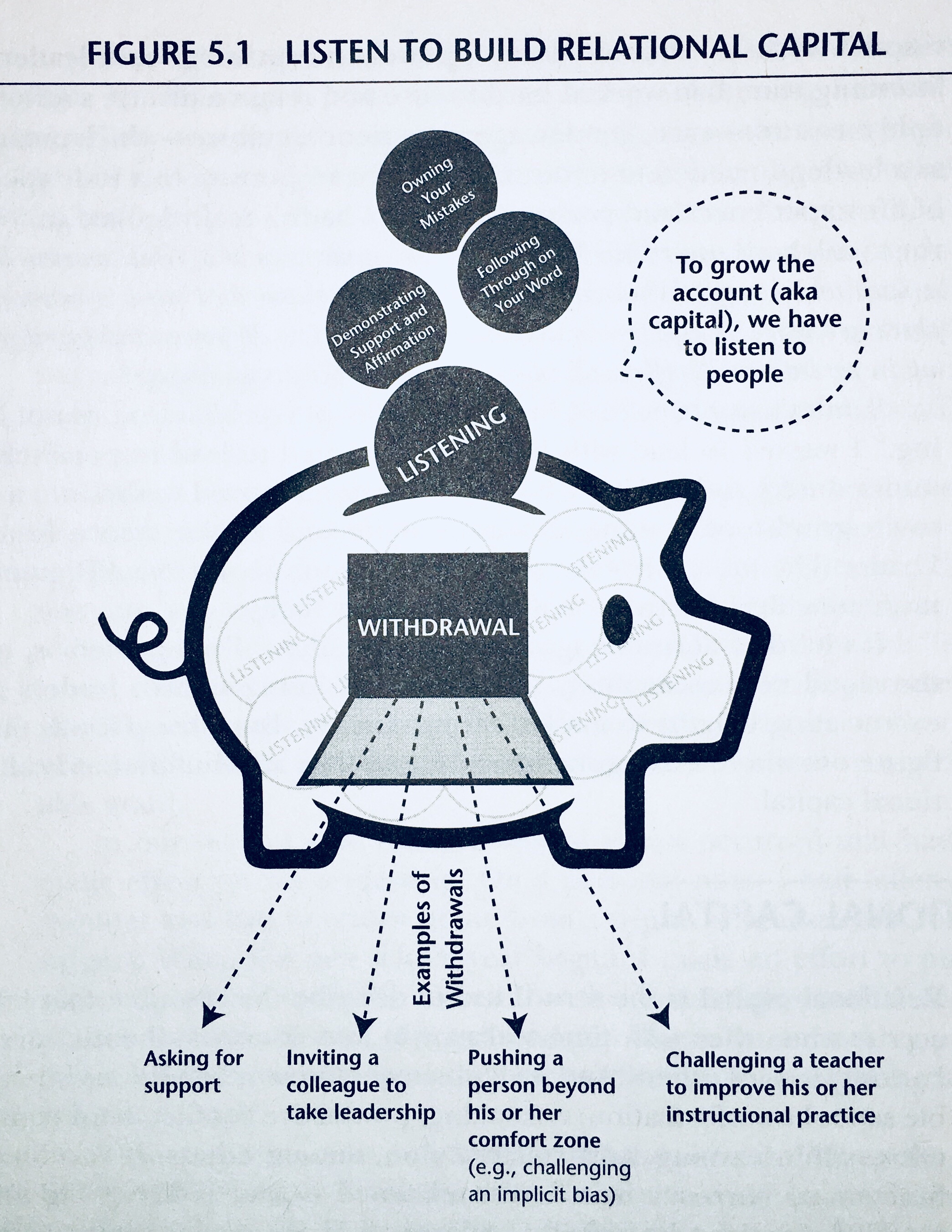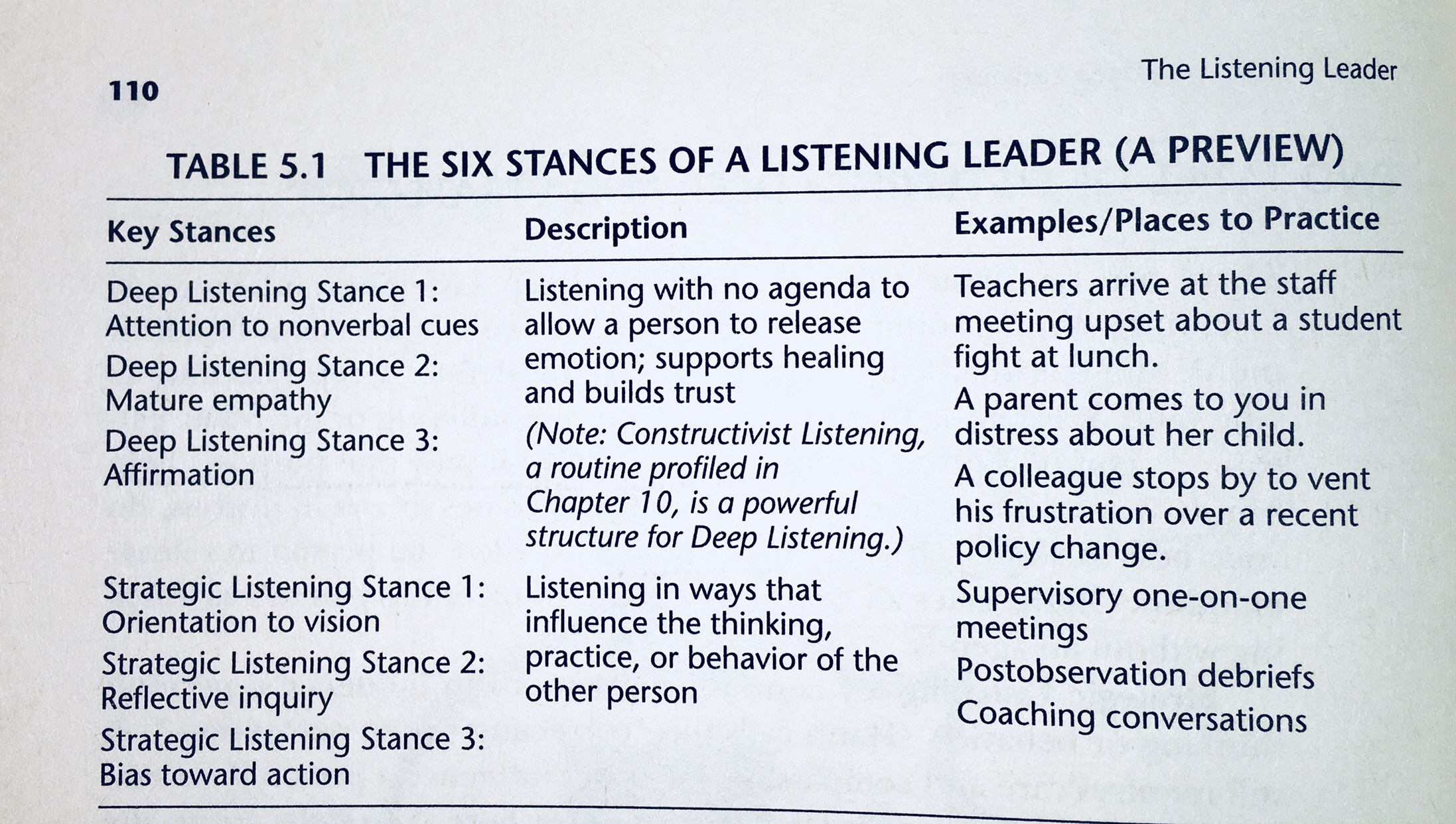9 times when leaders need to shut up and listen
Leaders do a lot of talking.
Too much.
You may have the gospel pouring out of your mouth, but that doesn’t mean that you will automatically have disciples. But, great schools need great leaders in order to create focus, coherence, and align supports, especially for underserved students. A Malawian proverb reads, “If you are leading and no one is following, you are just taking a walk.” Many leaders are just talking, but want to be leading.
So what can you do about it?

It’s not leadership if no one is walking with you. Furthermore, if people are faking it, looking how they can simply be compliant, or actively undermining your work, its time to stop talking.
So sit down.
Shut up.
And listen!

The Listening Leader
Shane Safir, the author of, The Listening Leader, makes the connection between trust, listening, and change management. She writes about relational capital, “the resource that leaders accrue when they take the time to listen to and convey authentic care and curiosity towards others. And it’s a precursor to many conditions for equitable school transformation: risk-taking, productive conflict, hard conversations, adult learning, and collaboration.” (Safir, 2017)
Further, listening is like making an investment, and if your bank is filled up, you can afford the costs of change and transformation.

In addition, here are 6 stances, which Safir writes a leader can use to listen more effectively.

In my leadership, I have always been good at strategic listening. Deep listening, not so much. Hence, I’m glad I have my coach and that there are some tips. I have seen that people don’t always want me to solve their problems. many times, people want to be heard. Your staff will let you know if they want your opinion or your help. Deep listening can truly develop relational trust and help you, as Safir writes, “accrue relational capital.” (I should add The Listening Leader to my top 10 book list)
9 times when you need to do more listening than talking
- You first arrive at a school and you are the new leader
- Someone walking into your office in tears
- Whenever students are sent out of the classroom regardless of the story
- A new transfer student arrives with a very thick cumulative folder
- Staff morale is low
- Teachers say they don’t know who is making the decisions
- School initiatives are not being implemented
- Veteran staff say that “things are changing too fast”
- People say you are not listening
Probing questions to go deeper
When people share their thoughts, don’t assume you know the root issues. Instead, listen and ask a few questions to dig, just like you want teachers to do in the classroom. Here a few examples:
- Tell me more
- Can you define that term for me?
- How can I be more supportive?
- What would change that?
- What can I do a better job at?
Why is it so hard to listen?
For starters, you always think you are right, but you aren’t. Leggo that ego. Another reason is your positional authority gives you the privilege to avoid listening and preemptively shut it down.
You have to actually stop talking and thinking about what you are going to say in order to listen. In addition, you are probably double booked all the time.
So book some time to listen.
And put less on your calendar.
Finally, you feel the urgency to push your agenda, especially if your purpose is to interrupt systemic oppression. Therefore, listening might suggest oppression is an option or that we can wait to take action.
Conclusions and Reflections
As a leader, even when you are pushing and talking about justice, sometimes you have to stop talking. It takes people time to process and time to work through their thoughts. Listening builds relational trust and deepens a relationship. Only with a strong foundation of trust, can you talk about changing practice and work on equity issues.
It is ok to have vision, passion, and urgency. However, with this you also need an approach to solidarity building. A leader can build more buy-in, through deeper listening and a few probing questions. You never know where you might end up because listening can help you get additional ideas of how to implement your vision. It takes teamwork to make the dreamwork so build your team.
Start listening.
Leaders, who do you need to listen to?
And what gets in the way?

